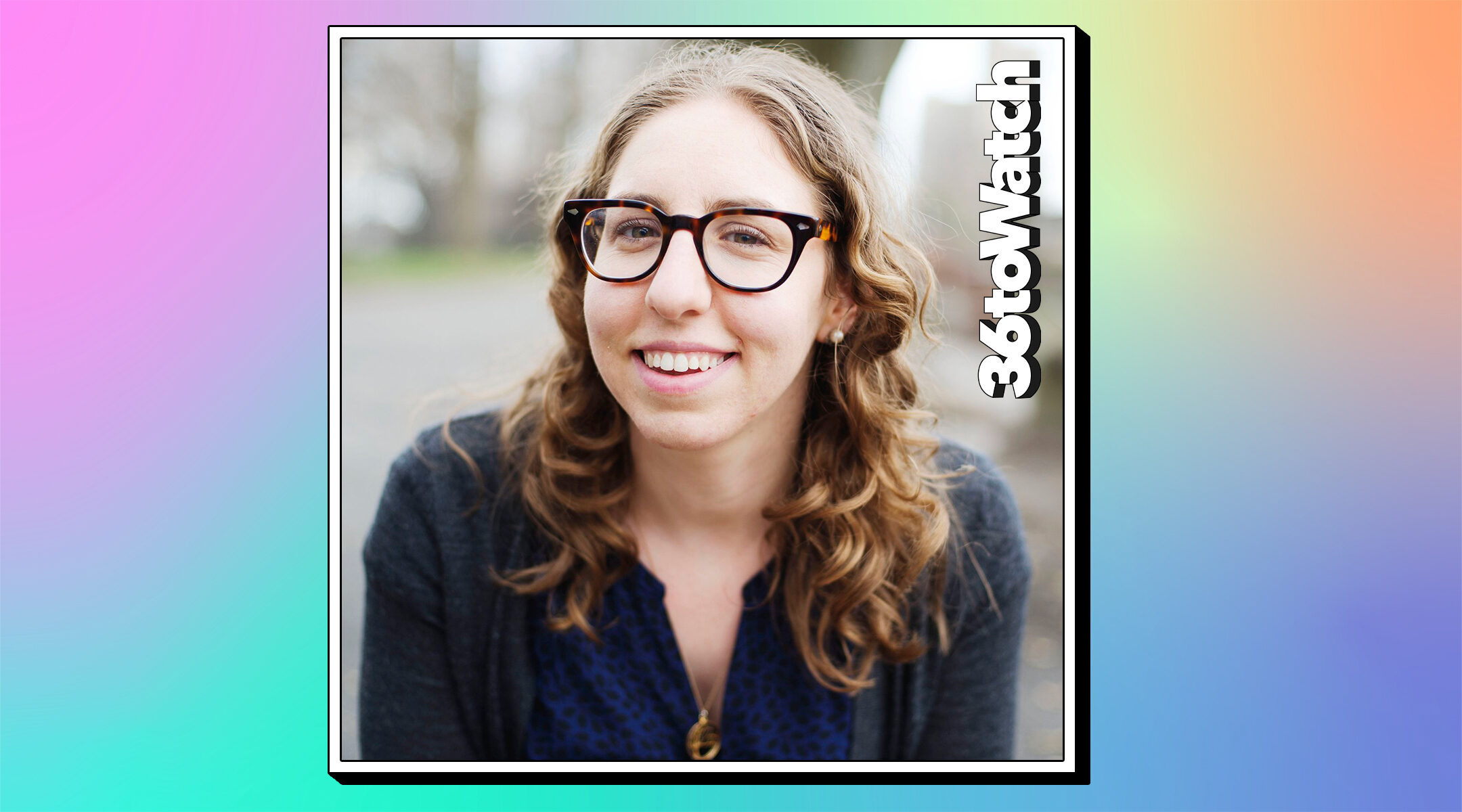Like many academics, Sandy Fox, 34, wears many hats. She teaches history as a visiting assistant professor at NYU; she’s the director of the just-launched Archive of the American Jewish Left in the Digital Age; and she just published a book, “The Jews of Summer: Summer Camp and Jewish Culture in Postwar America,” which is a history of Jewish summer camping that includes all the juicy (and, in some cases controversial) issues people think about when they think about Jewish camp. The Prospect Heights, Brooklyn, resident is also the founder, host and producer of “Vaybertaytsh: A Feminist Podcast in Yiddish.”
For the full list of this year’s 36 to Watch — which honors leaders, entrepreneurs and changemakers who are making a difference in New York’s Jewish community — click here.
How did you establish your career?
My path in work and life has been wind-y. When I was in my 20s, I thought I had to keep my public-facing Jewish cultural work, like “Vaybertaytsh,” separate from my academic research — that pressure exists in academia sometimes, especially when you’re a graduate student trying to prove yourself as “serious.” But I eventually learned to embrace these two sides of me — one that engages vocally and publicly in contemporary Jewish cultural and political issues, and the other that tries to investigate the past with critical distance. That eventually led me to writing “The Jews of Summer,” a book that is, as one of my colleagues blurbed it, “scholarly and entertaining.” I mean, why not be both?
This story is part of JTA's coverage of New York through the New York Jewish Week. To read more stories like this, sign up for our daily New York newsletter here.
How does your Jewish identity or experience influence your work?
When I entered college at The New School and started taking classes that touched on Israeli politics, I felt really blindsided by my heavily Zionist summer camp/youth group education. By the time I started my PhD program at age 23, I was on a journey when it came to my Jewish identity, trying to figure out how to replace Zionism — which had been the heart of my Jewish identity up until that point — with something else. I learned Yiddish and started “Vaybertaytsh” as part of my embrace of diaspora Jewish culture; I started attending alternative minyanim in Brooklyn that aligned with my feminism and overall politics much more than the synagogues of my childhood. My twenties, in other words, were marked by Jewish experimentation, and all the while I was writing this dissertation that was about how places like my summer camp, Young Judaea’s Camp Tel Yehudah, came to be the way they are.
Was there a formative Jewish experience that influenced your life path?
After college, I spent a year dabbling in a bunch of Jewish jobs while I applied to grad school. One of them was working for Jewish Funds for Social Justice, now Bend the Arc, leading service learning programs for college students, spring break trips to volunteer in places like New Orleans. The job was such an interesting and fun challenge, but the training, alongside about two dozen other trip leaders in their 20s, was what changed my life. That was my first exposure to a world of young, post-college adults doing Judaism in their own ways, and making their Jewishness reflective of their politics and values.
What is your favorite place to eat Jewish food in New York?
B+H Dairy
What is your favorite book about New York?
“Modern Lovers” by Emma Straub
How can people follow you online?
@sandy__fox on Twitter
Want to keep up with stories of other innovative Jewish New Yorkers? Click here to subscribe to the New York Jewish Week’s free email newsletter.
The New York Jewish Week brings you the stories behind the headlines, keeping you connected to Jewish life in New York. Help sustain the reporting you trust by donating today.





